Top Solar Battery Manufacturers in 2024
Table of Contents
Selecting the best solar battery for your home is crucial to optimizing the efficiency and reliability of your solar energy system. With numerous options available from leading manufacturers like Sonnen, Tesla, Generac, MANLY Battery, SunPower, and Enphase, it can be challenging to determine the ideal choice for your specific needs. This article delves into the standout products and features of these top solar battery manufacturers. We will explore the factors you should consider when choosing a solar battery, such as cost, storage capacity, power rating, and depth of discharge. Our goal is to provide you with the information needed to make an informed decision, ensuring you invest in a reliable and efficient solar battery that meets your energy requirements.
Best solar battery manufacturers
Choosing the right solar battery is essential for maximizing the efficiency and reliability of your solar energy system. With numerous manufacturers offering a variety of products, it can be overwhelming to determine which option best suits your needs. We will explore some of the top solar battery manufacturers, including Sonnen, Tesla, Generac, MANLY Battery, SunPower, and Enphase.
Sonnen Eco
Sonnen is a well-known name in the solar battery industry, recognized for its flexibility and innovative solutions. The company offers a wide range of products, including the popular ecoLinx series. This series is particularly appreciated for its ability to adjust capacity, making it suitable for various energy needs. Other notable products from Sonnen include the SonnenEvo and SonnenCore+, giving homeowners plenty of options to choose from.
One of the standout products from Sonnen is the EcoLinx 12. This model is known for its long-lasting performance and advanced features. It comes with an impressive 15-year warranty, ensuring that customers can rely on it for a long time. Additionally, the EcoLinx 12 has a 100 percent depth of discharge. This means that the battery can use all of its stored energy without damaging itself, making it highly efficient.
However, these premium features come at a higher price, positioning the EcoLinx 12 at the more expensive end of the market. Despite the cost, the blend of innovation and reliability makes Sonnen’s offerings, especially the EcoLinx 12, a valuable investment for those seeking top-tier solar battery solutions.
In February 2019, Shell acquired Sonnen for about 500 million euros. This acquisition has helped Sonnen enhance its product offerings and develop new energy solutions. Shell’s involvement began in May 2018, with an initial investment of 71 million dollars. This strategic partnership focuses on creating comprehensive energy solutions and improving electric vehicle charging options.
Sonnen’s commitment to innovation and reliability, supported by Shell’s investment, has positioned it as a leader in the solar battery market. For homeowners looking for dependable and high-performance solar battery solutions, the Sonnen Eco series, particularly the EcoLinx 12, offers a compelling choice.
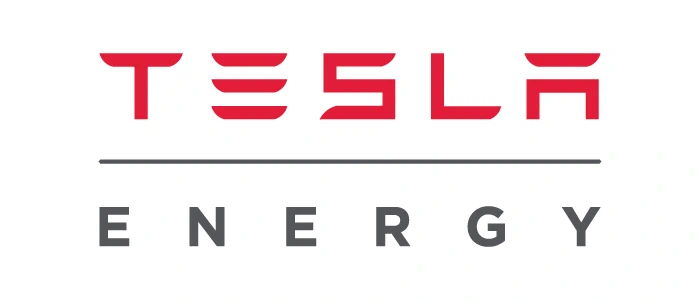
Tesla
Tesla Powerwall is a standout in the solar battery market, blending innovation with a trusted brand name. The Tesla Powerwall 2 is particularly notable for its unique 100 percent Depth of Discharge (DoD) rating. This means the battery can be fully drained without losing efficiency, a rare feature among its competitors.
One of the key attractions of the Powerwall is its impressive warranty. Tesla offers a 10-year warranty, guaranteeing that the battery will retain up to 70 percent of its original capacity. This warranty also includes unlimited cycles, which is uncommon in the industry. These features make the Powerwall not only a technically advanced option but also a reliable and cost-effective choice for consumers.
Tesla’s impact on the energy storage market extends beyond the Powerwall. The company also offers the Powerpack for commercial and utility projects and the Megapack for large-scale storage needs. The Megapack is particularly groundbreaking, with a storage capacity of up to 3 MWh and an inverter capacity of 1.5 MW. In less than three months, a 250 MW, 1 GWh clean power plant can be set up using the Megapack.
Tesla’s commitment to innovation and efficiency has solidified its strong market presence. In the first half of 2023, Tesla’s energy storage systems accounted for 20% of global shipments, with the Megapack dominating the market, holding about 30% of the global battery storage market share. To meet the growing demand, Tesla is expanding its production capacity, including a 40 GWh Megapack factory in Lathrop, California, and a planned facility in Shanghai, China.
Despite being smaller in scale compared to its electric vehicle division, Tesla’s energy storage business is rapidly growing. In 2023, this segment’s revenue surpassed $1 billion for the first time, reflecting the effectiveness of Tesla’s strategic investments. As the world shifts towards renewable energy, Tesla’s innovative energy storage solutions are poised to play a crucial role in the global transition to a sustainable future.
Tesla’s Powerwall, with its combination of advanced features and strong brand reputation, is a top choice for those looking for efficient and reliable solar battery solutions. Whether for residential, commercial, or large-scale applications, Tesla’s energy storage products offer versatile and high-performing options that cater to a wide range of energy needs.
MANLY Battery
MANLY Battery is a leading name in the battery manufacturing industry, with over a decade of experience in delivering high-quality energy solutions. Based in China, MANLY Battery has built a strong reputation for its dedication to excellence and innovation in battery technology.
One of the key strengths of MANLY Battery is its impressive production capacity. Every day, their facilities produce up to 6MWh of battery cells and packs, assembling over 3,000 batteries. This high volume reflects their commitment to meeting large-scale demands without compromising on quality. The company operates from state-of-the-art manufacturing units in Shenzhen, Dongguan, and Huizhou, covering a vast area of 65,000 square meters.
MANLY Battery offers a versatile range of products, including LiFePO4 and lithium-ion batteries, with voltages ranging from 6V to 72V. These batteries are designed for a wide array of applications, such as solar energy storage solutions, residential and industrial energy storage, advanced robotics, base station support, solar street lighting, and Uninterruptible Power Supply (UPS) systems.
A notable aspect of MANLY Battery is their focus on customization. They provide bespoke battery services that allow clients to specify voltage, capacity, and even aesthetic preferences, ensuring each battery meets precise requirements.
Quality and safety are paramount at MANLY Battery. Their products are globally recognized, holding certifications like UN38.3, IEC62133, UL, and CE. Additionally, MANLY batteries come with a 10-year warranty, underscoring their durability and reliability. Safety features include short circuit protection, overcharge safeguards, and overcurrent prevention, ensuring user safety and robust performance even after severe impacts.
MANLY Battery’s LiFePO4 batteries are designed to perform under extreme conditions, with an operating range from -20°C to 75°C (-4°F to 167°F). While they recommend following specific temperature guidelines for charging, their batteries are built to endure harsh environments.
Efficiency is another hallmark of MANLY batteries. With an energy efficiency rate of 95%, these batteries outshine traditional lead-acid batteries, which typically have a 70% efficiency rate. This results in faster charging times and lower energy consumption.
To enhance user experience, MANLY integrates modern features like Bluetooth connectivity and intuitive battery level displays into their products. These innovations make it easier for users to monitor and manage their energy storage systems effectively.
In summary, MANLY Battery combines legacy with innovation, offering high-quality, efficient, and customizable energy storage solutions that meet the diverse needs of today’s market. Their commitment to quality, safety, and customer satisfaction makes them a top choice among solar battery manufacturers.
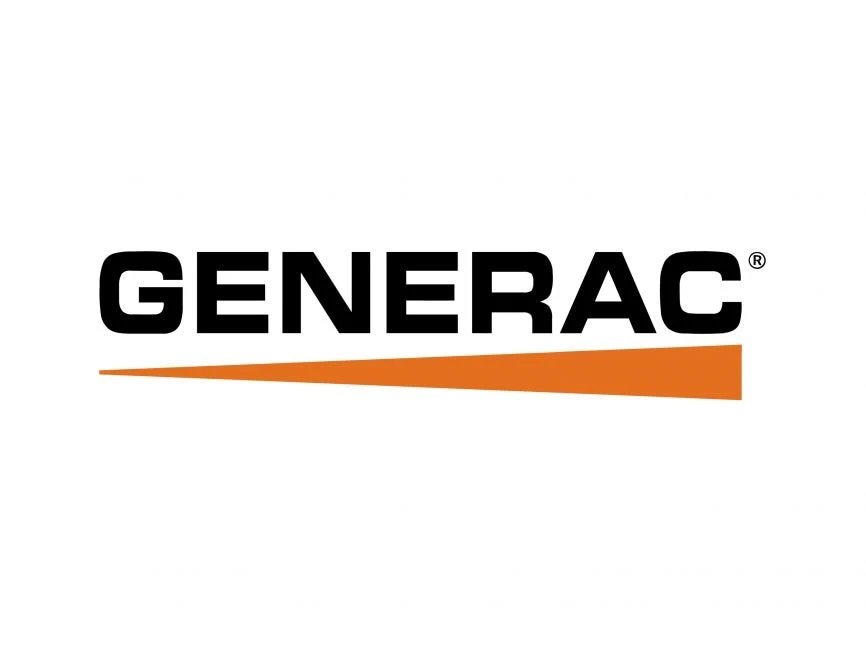
Generac
Generac is a well-known name in the energy sector, celebrated for its innovative and adaptable designs. A prime example of this is the Generac PWRcell M4. This battery system is notable for its modularity, allowing homeowners to tailor their energy storage to their specific needs. Instead of purchasing a one-size-fits-all product, customers invest in a system that can grow with their energy requirements.
The PWRcell M4 starts with a base module, and users can expand their storage capacity by adding more modules as needed. This means that if your energy needs increase over time, you don’t need to replace the entire system. The cabinet design of the PWRcell M4 makes these additions straightforward and hassle-free, providing a flexible and cost-effective solution.
Generac’s PWRcell M4 boasts a reputable efficiency rate, ensuring that energy is stored and used effectively. The company also offers a reliable warranty, adding to the system’s appeal. However, it’s important to note that the DC-coupled nature of the PWRcell M4, while enhancing efficiency, requires a separate inverter. This makes it particularly suitable for new solar installations where the entire system can be designed together.
In terms of financial performance, Generac Holdings reported a net profit of $215 million for the fiscal year 2023, despite a 38.57% decrease from the previous year. The company’s revenue for the same period was $4.023 billion, reflecting an 11.87% decrease. However, in the first quarter of the 2024 fiscal year, Generac’s revenue saw a slight increase, reaching $889 million, compared to $888 million in the same quarter of the previous year.
Generac continues to be a strong player in the solar battery market, providing innovative and flexible solutions that cater to the evolving needs of homeowners. The PWRcell M4, with its modular design and efficiency, exemplifies Generac’s commitment to meeting the demands of modern energy storage.

SunPower
SunPower is renowned for its high-efficiency solar solutions and its continuous innovation in solar technology. Established in 1985 and headquartered in California, SunPower has been a significant player in the solar industry, consistently pushing the boundaries of what solar technology can achieve.
One of the standout products from SunPower is the SunVault storage system. This system boasts an impressive 85 percent round-trip efficiency, meaning that for every 100 units of energy stored, 85 units are usable. This efficiency rate is significantly higher than the typical 80 percent seen in other batteries, showcasing SunPower’s technological superiority.
SunPower’s commitment to quality is also evident in their warranty offerings. The SunVault system comes with a 10-year warranty, ensuring that the battery will maintain 70 percent of its original capacity over this period. This long-term reliability gives customers confidence in their investment and underscores the company’s dedication to quality.
Despite facing financial challenges in 2023, with a reported net loss of $227 million, SunPower generated $1.685 billion in revenue, highlighting its strong market presence. The company had total liabilities of $1.04 billion, including $356 million in short-term debt. These figures demonstrate SunPower’s resilience and its ability to maintain a significant position in the market.
SunPower operates through two main segments: SunPower Technologies (SPT) and SunPower Energy Services (SPES). SPT focuses on the development and manufacturing of high-efficiency solar cells and photovoltaic systems, while SPES manages the sales and installation of solar solutions for residential and commercial customers in North America.
A notable milestone in SunPower’s history was in June 2010, when the National Renewable Energy Laboratory (NREL) confirmed that a SunPower solar cell achieved a conversion efficiency of 24.2%. This achievement set a new world record for crystalline silicon solar cells and highlighted SunPower’s innovative capabilities.
SunPower’s products are widely used in residential, commercial, and utility-scale power generation systems, proving their versatility and reliability. This broad application and dedication to innovation and efficiency make SunPower a top choice among solar battery manufacturers.
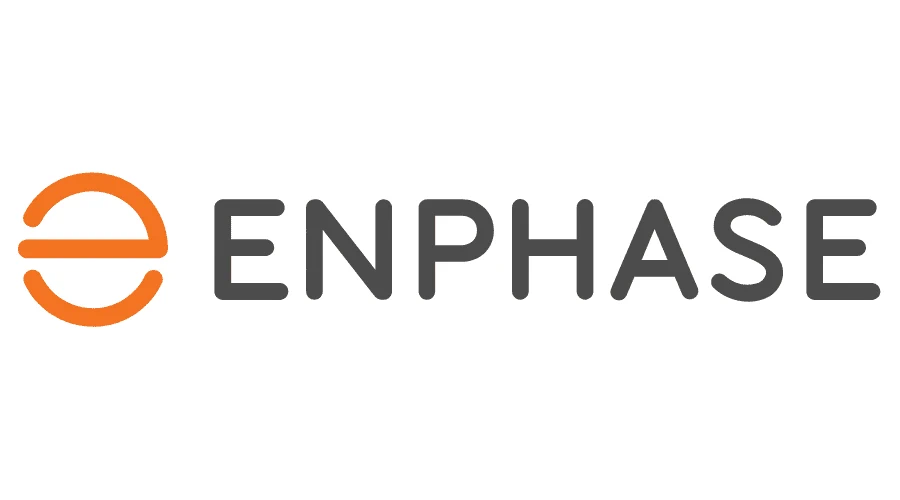
Enphase
Enphase has established itself as a leader in the solar energy storage industry, offering innovative solutions that cater to residential and commercial markets in North America, Europe, and Australia. One of their standout products is the Enphase IQ Battery 5P.
The IQ Battery 5P features a substantial storage capacity of 5.0 kWh, making it an excellent choice for homeowners looking to store and efficiently use solar energy. This battery is known for its reliability, backed by a 15-year warranty, which gives users peace of mind regarding its longevity and performance.
A unique feature of the IQ Battery 5P is its passive cooling system, which operates silently without the need for noisy fans or moving parts that could wear out over time. This design enhances the battery’s durability and ensures a longer lifespan.
Installation of the IQ Battery 5P is straightforward, and once set up, users can easily monitor its performance through the Enphase App on their smartphones. This app provides real-time data, allowing homeowners to track energy usage and optimize their solar energy consumption.
Enphase was founded in 2006 and has since focused on designing, developing, and selling home energy solutions. Although primarily known for their microinverters, Enphase has also made significant strides in the battery storage market. The company reported a net profit of $439 million for the fiscal year 2023, with revenues of $2.291 billion. Despite a slight decrease in revenue, Enphase’s profitability increased by 10.58% from the previous year.
In the second quarter of 2023, Enphase shipped approximately 4.8 million units, with expectations to increase quarterly production capacity by 4.5 million units due to the Inflation Reduction Act (IRA). By the end of 2023, Enphase aims to have a global quarterly production capacity of over 10 million microinverters.
Enphase continues to dominate the global microinverter market, holding an estimated 72% market share. The company’s consistent high-profit margins and expanded production capacity solidify its position as a top player in the industry.
Overall, Enphase’s commitment to innovation, reliability, and user-friendly technology makes it a standout among solar battery manufacturers. Their products, like the IQ Battery 5P, are designed to provide efficient and long-lasting energy storage solutions for a wide range of customers.
Essential Considerations for Selecting a Solar Battery
Choosing the right solar battery can significantly impact the efficiency and reliability of your solar energy system. Here are some key factors to consider:
Investment Value
When evaluating solar batteries, it’s important to view the cost as an investment. Higher-priced batteries often offer longer lifespans, better efficiencies, and advanced technologies. By considering the cost-per-lifetime-cycle, you can better understand the overall value of your investment. Additionally, factor in the cost of solar panels to get a complete picture of your solar energy budget.
Understanding Your Energy Usage
Understanding your energy consumption patterns is crucial. Different homes and businesses have varying energy needs. Analyze your daily and seasonal energy usage to ensure you select a battery that meets your requirements without overinvesting or underestimating your needs.
Energy Storage Capacity
Storage capacity, measured in kilowatt-hours (kWh), indicates how much energy a battery can store. This factor directly affects how long your solar setup can power your home during non-solar hours. Choose a battery with sufficient capacity to meet your needs, whether for a few essential devices or your entire home.
Electric Output Capabilities
A battery’s power rating shows how much electricity it can provide at one time. Even with a high storage capacity, an inadequate power rating may prevent you from running multiple appliances simultaneously. Ensure the power rating aligns with your household’s power demands, especially during peak usage times.
Usable Energy (Depth of Discharge)
Depth of Discharge refers to the percentage of a battery’s capacity that can be used without shortening its lifespan. Batteries with a higher DoD offer more usable energy. Look for batteries with a high DoD to maximize the available energy without compromising the battery’s longevity.
System Compatibility
Compatibility between your solar battery and solar panels is crucial for efficient energy transfer and storage. Ensure your chosen battery works well with your existing or planned solar panel system to avoid performance issues.
Energy Conversion Systems
Solar energy can be stored as either alternating current (AC) or direct current (DC). DC-coupled systems are usually more straightforward and less expensive, while AC-coupled systems offer greater flexibility, particularly for adding storage to existing installations. Discuss with your solar installer to determine the best option for your setup.
Efficiency Metrics
This factor measures the energy lost during the charging and discharging process. Higher round-trip efficiency means more of your stored solar energy is available for use. Aim for batteries with high efficiency to get the most out of your solar system.
Warranty Coverage
A battery’s warranty provides insight into its expected lifespan and reliability. Look for warranties that cover a significant portion of the battery’s expected life. Understand the conditions that might void the warranty to ensure you remain covered. A long warranty period often indicates a durable and reliable product.
By considering these factors—investment value, energy usage, storage capacity, power rating, usable energy, compatibility, energy conversion systems, efficiency, and warranty—you can choose the best solar battery to meet your needs, ensuring efficient and reliable energy storage for your home or business.
How Many Solar Batteries Do I Need
When deciding how many solar batteries you need for your home, several factors come into play. Each household’s needs are different, so it’s important to consider your specific situation.
Typical Battery Needs for Homeowners
A common residential solar battery stores about 10 kilowatt-hours (kWh) of energy. Depending on your goals, the number of batteries you need will vary:
- Cost Savings: Typically, 2 to 3 batteries are sufficient to cover times when your solar panels aren’t generating electricity, like at night or during bad weather.
- Resilience: For basic backup power during grid outages, 1 battery might be enough.
- Self-Sufficiency: To live off-grid, you might need about 8 to 12 batteries. This setup is more suited for those aiming for complete energy independence.
Impact of Net Metering
Net metering can affect how many batteries you need. If you are in a one-to-one net metering area, you can send excess energy to the grid in exchange for credits, reducing the number of batteries required. Essentially, the grid acts like a large battery, lowering your need for extensive on-site storage.
Storage Space Needs
The number of batteries you need depends on your storage requirements. Most homeowners use solar systems primarily to save money and reduce their carbon footprint. Typically, having 1 to 4 batteries is enough to store power when your panels aren’t generating and to prepare for grid failures.
Size of Your Home
The size of your home impacts the number of solar panels and, consequently, the batteries needed. Larger homes generally require more power and can accommodate more panels, leading to higher energy production and storage needs.
Household Energy Usage
Your household’s energy consumption is a key factor. To estimate, review your energy bills from the past year, total them, and divide by 12 to find your average monthly usage. This will help you determine the number of batteries needed to meet your energy demands.
Major Energy-Using Factors
Consider your home’s major energy loads. Heavy loads include appliances like refrigerators and air conditioners. If you have multiple high-energy appliances or live in a hot climate requiring frequent air conditioning, you might need more batteries.
Fixed vs. Variable Electricity Rates
Your electricity rate plan also influences your battery needs. In areas with variable rates, you can sell stored energy back to the grid at higher prices, a practice known as “arbitrage.” If this is an option, investing in more batteries might be profitable, though most places have limits on how much energy you can sell back.
By evaluating these factors—cost savings, resilience, self-sufficiency, net metering, storage needs, home size, energy usage, major energy loads, and electricity rates—you can determine the optimal number of solar batteries for your home. This ensures you have an efficient, reliable, and cost-effective solar energy system.
Conclusion
In conclusion, choosing the right solar battery involves evaluating several critical factors, including cost, storage capacity, power rating, depth of discharge, and compatibility with your solar panels. By considering these elements, you can select a battery that provides optimal performance and meets your specific energy needs. Leading manufacturers like Sonnen, Tesla, Generac, MANLY Battery, SunPower, and Enphase offer a range of innovative and high-quality solutions tailored to different applications. Investing in a top-tier solar battery not only enhances the efficiency and reliability of your solar energy system but also contributes to long-term savings and a sustainable future.
Learn More About Battery
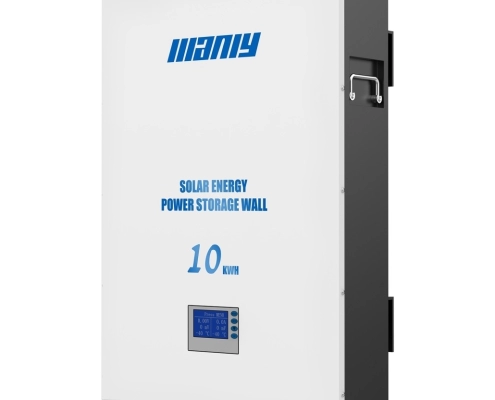 https://manlybattery.com/wp-content/uploads/2022/11/10-1-1030x1030-1.webp
1030
1030
administrator
https://manlybattery.com/wp-content/uploads/2024/09/Manly-battery-logo2.webp
administrator2022-05-30 16:48:582024-07-08 17:45:07Top Solar Battery Manufacturers
https://manlybattery.com/wp-content/uploads/2022/11/10-1-1030x1030-1.webp
1030
1030
administrator
https://manlybattery.com/wp-content/uploads/2024/09/Manly-battery-logo2.webp
administrator2022-05-30 16:48:582024-07-08 17:45:07Top Solar Battery Manufacturers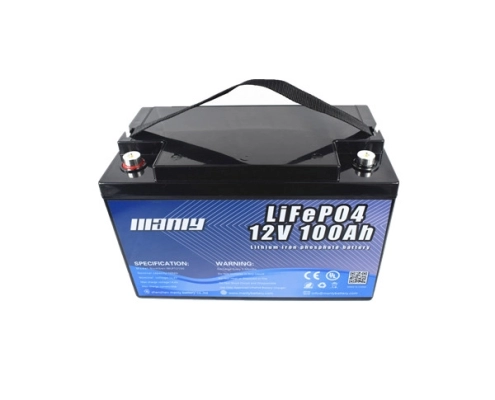 https://manlybattery.com/wp-content/uploads/2022/12/12V-100Ah-2.webp
600
600
administrator
https://manlybattery.com/wp-content/uploads/2024/09/Manly-battery-logo2.webp
administrator2022-05-16 11:34:062025-02-11 15:48:10What Is the Maximum Inverter for 100Ah Battery?
https://manlybattery.com/wp-content/uploads/2022/12/12V-100Ah-2.webp
600
600
administrator
https://manlybattery.com/wp-content/uploads/2024/09/Manly-battery-logo2.webp
administrator2022-05-16 11:34:062025-02-11 15:48:10What Is the Maximum Inverter for 100Ah Battery? https://manlybattery.com/wp-content/uploads/2022/12/12V-100Ah-2.webp
600
600
administrator
https://manlybattery.com/wp-content/uploads/2024/09/Manly-battery-logo2.webp
administrator2022-05-15 10:37:012025-01-21 15:04:21How Long Will a 100Ah Battery Last?
https://manlybattery.com/wp-content/uploads/2022/12/12V-100Ah-2.webp
600
600
administrator
https://manlybattery.com/wp-content/uploads/2024/09/Manly-battery-logo2.webp
administrator2022-05-15 10:37:012025-01-21 15:04:21How Long Will a 100Ah Battery Last?



